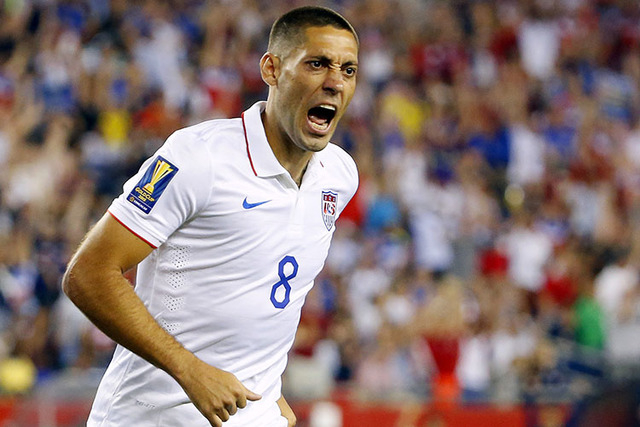Orthodontics program threatened
A national commission has threatened to revoke the accreditation of UNLV's troubled orthodontics program over concerns about the quality of its education.
Too many students, too few faculty and a lack of clinical education led to conditions where the "orthodontic education was shallow," a recent report from the Commission on Dental Accreditation stated.
Half of this year's graduating class had no experience with periodontics patients, or patients who have severe problems with their gums, and many other students lacked experience in basic areas such as headgear and functional appliances.
"As a result, the visiting committee did not believe that the students/residents are receiving the orthodontics education that would prepare them for a clinical orthodontics practice," the report stated.
In light of the warning, officials are going to cut the school's future class sizes in half -- from 16 students to eight -- and give each student four times as many patients to see.
UNLV School of Dental Medicine Dean Karen West said the school will also hire several more faculty members.
"We're trying to improve the program, and that's my goal," said West, who assumed the post in April when the commission's site visitors interviewed orthodontic faculty and students.
The commission has given UNLV's orthodontics program just six months to comply with the commission's recommendations -- instead of the two years normally allowed, according to Catherine Horan, manager of advanced specialty education for the commission.
The board "believed strongly that this deserved aggressive attention" she said, and allowed UNLV a far shorter deadline.
The commission's findings were just the latest blow to the orthodontics program, which has been controversial since an entrepreneur offered tens of millions of dollars to the university to found the program and later defaulted on the deal.
It's also not the first time in the School of Dental Medicine's five-year history that concerns have arisen over the quality of its instruction. Last year, 10 students were allowed to graduate from the dental school after they'd been found to have forged instructors' signatures.
Orthodontics can be a lucrative venture for dental schools because the schools can charge students high tuition and collect money from the orthodontic work those students provide for patients.
Although they're primarily associated with realigning teeth, orthodontists receive training in a variety of areas relating to the structure of the mouth.
Officials are quick to point out that all of this year's graduating class, the first in the orthodontics program's history, passed the American Board of Orthodontics test.
And the program was commended by the commission for having a variety of radiography equipment available.
But students lacked proficiency in a number of areas, including "research fundamentals," and students couldn't answer "elementary questions related to growth and development, treatment or biomechanics," the report stated.
In the case of biomechanics, which includes correcting bites, students' only exposure was from a faculty member who taught two or three days every six months.
A lack of faculty was a recurring theme in the report.
But the report noted that two of the program's three full-time teaching staff were not allowed to teach or work in the clinic.
On Feb. 1, faculty members Jaleh Pourhamidi and Lynn Hurst, a former program director of the orthodontics program, were both given notices relieving them of those duties.
The move came just a week after the two spoke critically of the program's leadership during the public comment portion of a Board of Regents meeting.
The university continued to pay them their six-figure salaries. Pourhamidi resigned last month.
University officials were not able to provide an explanation for Pourhamidi's and Hurst's suspensions, citing a lawsuit Hurst has pending against the university regarding his contract.
The orthodontics program is accredited, and students currently in the program will officially graduate from an accredited institution.
If UNLV doesn't meet the commission's requirements, however, future students will not graduate from an accredited school and its reputation and quality of instruction could suffer.
West said the program will be able to meet February's deadline.
By that time, the program must:
• Offer students enough clinical experience to meet the commission's standards.
• Draft an agreement with a separate institution, such as a local surgical facility, where the residents can also practice.
• Increase faculty.
• Increase the time faculty have for their own professional development.
To comply, students this fall will see more patients and a wider variety of dental problems. To attract more patients, she said, the program will cut prices on services such as orthodontics.
The school is also planning on hiring five more part-time faculty and three more full-time faculty, she said.
Regent Steve Sisolak, who read the commission's report, said he would pursue the issue with top higher education system officials.
"I had no idea it was this bad," he said.
Sisolak and Regent Mark Alden both voted against founding the orthodontics program three years ago.
"I've always been distressed about that orthodontics program," Alden said. "I thought from day one there were issues, so this doesn't surprise me."
The program was founded on an unusual arrangement with Orthodontic Education Co., which pledged about $74 million over 30 years in exchange for the school's graduates being required to work for the company after graduating.
In 2006, the company backed out of the deal. To make up for the loss in funding, the university increased student fees from $30,000 per year to $45,000 per year.
The dental school is entirely self-supporting and receives no state funds, according to West. It will continue to be self-supporting even with the smaller class sizes, she said.


















